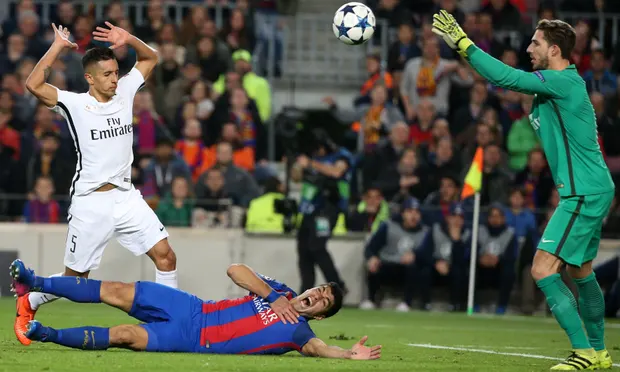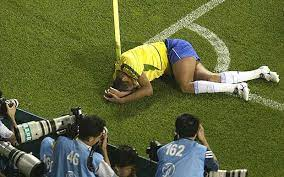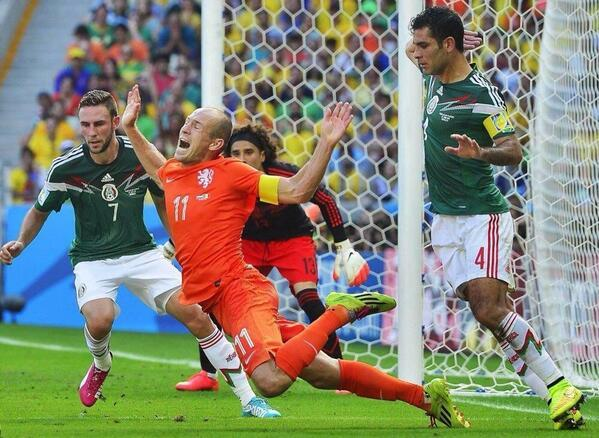Among the ugly truths of soccer, diving is arguably the most shameful. The practice, which has become rampant in recent years, has rubbed purists of the sport the wrong way and sparked a huge debate as to whether the current rules and punishments are sufficient to deal with and possibly eliminate the vice. Though diving exists in one form or another in almost every professional soccer league in the world, one league has been nonchalant in its approach towards curbing allowing the culture to fester and sink, pun intended, to new lows rightfully earning the wrath of its fans and peers.
Which soccer league dives the most? Though diving happens in arguably every soccer league in the world, it is particularly rampant in La Liga. The practice has made Spain’s top-flight the slowest league in Europe and the world prone to time-wasting tactics that disrupt the flow of the game and reduce the actual playing time making it nearly impossible to watch and enjoy.

Common Thread
Diving occurs in almost every sport and has a number of synonyms including simulation (soccer), flopping (basketball), playacting, and embellishment (hockey). Though it is known by many names, the concept is the same – a player pretends to be hurt, falls, or staggers with little to no contact by their opponent in order to either nullify their opponent’s advantage or encourage a referee to award them an undue advantage that would either guarantee them possession, an opportunity to advance or both.

In order to “sell” the idea that they are hurt to match officials, players often exaggerate the extent of their injury by doing acts such as falling to the ground and remaining there for an extended period of time, holding parts of their body that have been allegedly injured, screaming loudly to attract the referee’s attention and writhing back and forth on the ground.
Other players, especially those who may be looking to run down the clock in order to secure the desired outcome (a victory or a draw) by reducing their opponent’s chances to equalize or score subsequent goals or points often take the exaggeration a notch higher by remaining on the ground until they are provided with assistance.
Diving in Soccer
Contrary to popular opinion, determining whether a player has dived or not is not as easy for match officials as it may seem. A lot of factors have to naturally be considered since soccer is after all a high-contact sport that is normally played at a fast pace.
Players tend to run at an average speed of about 20 miles per hour (32 kilometers per hour) making even the slight obstructions and nudges potentially serious and injury-causing. Therefore, some cases which may initially appear like diving may be in fact legitimate fouls that require to be addressed and penalized.

Prior to the adaption of the Video Assistant Referee (VAR) into the Laws of the Game by the International Football Association Board (IFAB) in March 2018, match officials largely relied on their assessment and that of their assistants to make such calls.
The implementation of the VAR system has however made it possible for officials to keenly review such incidents as it provides multiple angles of a play allowing referees to determine whether or not a penalizable offense has been committed.
Empowered by this capability, professional soccer leagues like the English Premier League (EPL) and the La Liga subsequently introduced rules that empower their governing bodies to retroactively punish players for diving.
In the EPL’s case, the Football Association (FA) enacted a law that created a new offense dubbed the Successful Deception of a Match Official. The rule which took effect from the beginning of their 2017/18 season slaps players who are found guilty of the offense with two-match bans for successfully deceiving a referee by either diving or feigning an injury.
To remain objective when determining whether or not a player has contravened the rule, the FA assigns incidents for review by a three-person panel that involves an ex-player, an ex-referee, and an ex-manager. Many pundits have lauded the approach as it involves individuals with an in-depth understanding of the game from different perspectives making it highly likely that a sound decision would be made.
Among the clubs with the most players who have been accused of diving in the EPL, two have stood out over the past few seasons – Arsenal and Everton. The Toffees were particularly “busy” in their 2021/22 campaign and were at one point responsible for half of the yellow cards that were issued for diving that season.
The Shameful Case of the La Liga
Of all the top-tier soccer leagues, the La Liga arguably has some of the most heavily-documented instances of diving. The league has also had a considerable number of players who have been accused of perfecting the art.
Among them are former Real Madrid quintet Cristiano Ronaldo, Gareth Bale, Ángel Di María, Sergio Ramos and Marcelo, ex-Barcelona trio Neymar, Luis Suárez and Dani Alves and long-time Barça midfielder Sergio Busquets, and former Atlético Madrid striker Diego Costa.
Perhaps Real Betis manager Manuel Pellegrini summed it up best in a recent interview when he slammed La Liga a disgrace for having “the most time-wasting” and “the most dives”, further lamenting that the league and its players, managers, and officials needed to do better by their fans because “people pay a ticket for something”.
The former Manchester City boss further disclosed that the league and its officials have admitted that the La Liga is “the slowest league in Europe” and that a joint effort needs to be made by referees, coaches, and players to rid the league of its tarnished reputation.
Remedies and Penalties
One would argue that one of the main reasons diving has become rampant in soccer is because the benefits (free kicks, penalties, and issuing of cards to opposing players) always appear to be greater than the penalties that players are likely to be handed if found guilty of the offense.
As Pellegrini suggested, it will require a joint effort by all soccer stakeholders in order to effectively nip the vice in the bud. Aside from the usual remedy that includes issuing (yellow and red) cards and the much stiffer two-match ban that has been made the standard in the EPL, a number of other solutions have been tabled.
They include awarding a penalty to the aggrieved team regardless of whether or not the diving offense was committed in the penalty area, which borrows from the National Basketball Association’s (NBA) rule on awarding a free throw to the opposing team for technical fouls.
Pundits have also suggested that teams and national federations should slap divers with hefty fines or suspend them from international duty and competitions. Lifetime suspensions from soccer have also been suggested for repeat offenders.
